


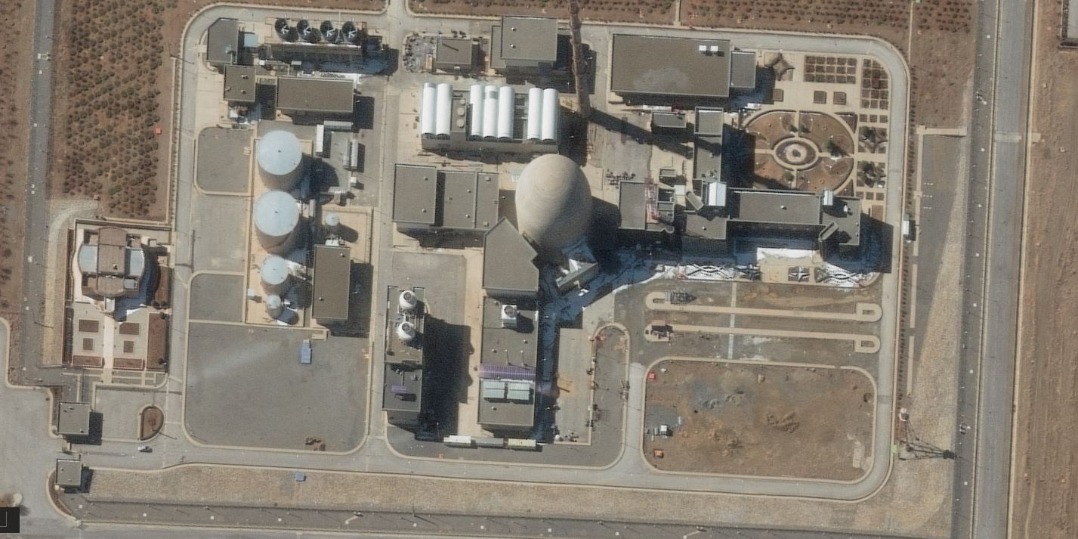
Iranian nuclear facilities may have largely survived attack, initial report says.
UN chief welcomes Trump's announcement of Israel-Iran ceasefire and urges Israel and Iran to fully respect the ceasefire and to stop fighting.
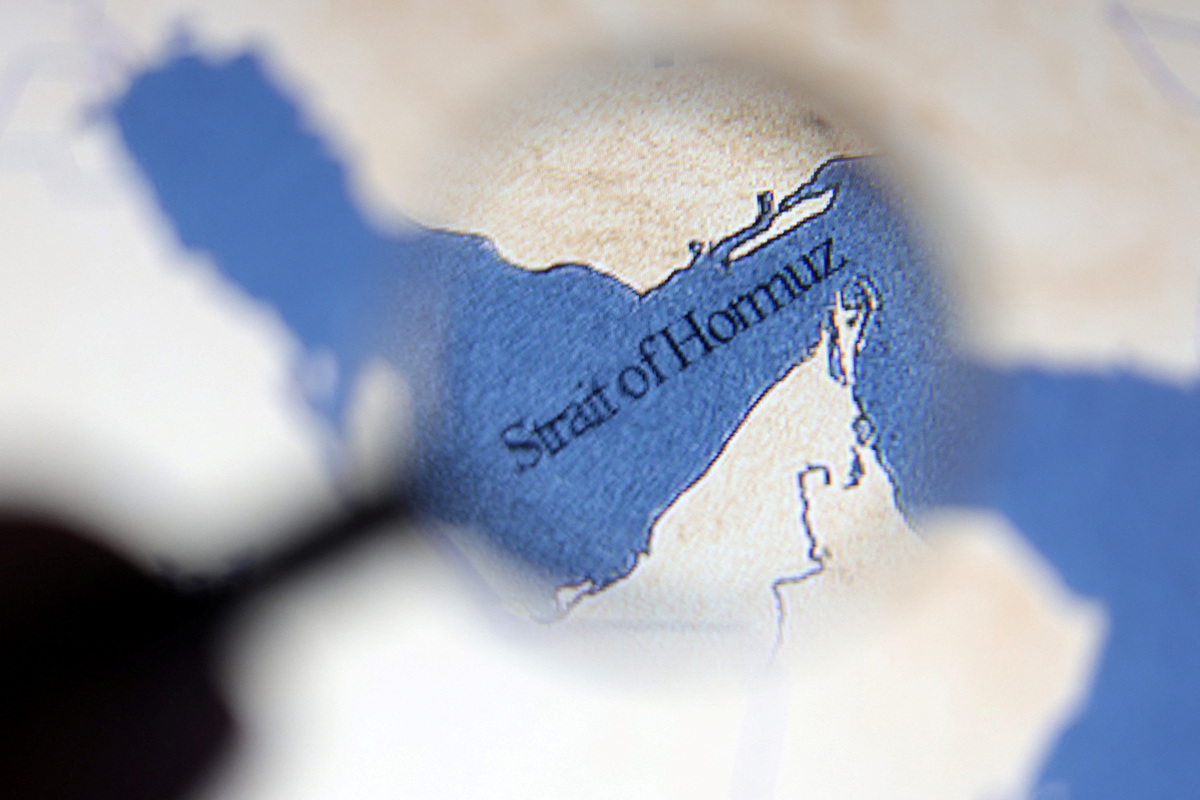
The Strait of Hormuz, the world's most critical oil shipping chokepoint, is once again at the center of escalating global tensions after Iran's parliamentary vote on Sunday authorizing its potential closure following the United States' direct airstrikes on its nuclear sites.
According to Iran's state media, the symbolic but politically charged vote empowers the Supreme National Security Council to implement the measure. While the decision does not require immediate action, analysts said it signals Teheran's intent to retaliate after what it has called a "blatant act of aggression" by Washington.
Iran's move aims to leverage its remaining strategic levers to send a deterrent message and seek a stronger position in future negotiations with the US and efforts to end the ongoing conflict, said Chen Zhaoyuan, a senior research fellow at the Institute of World Economics and Politics at the Chinese Academy of Social Sciences.
"This symbolic deterrence has had an adverse impact on global economic expectations. The decline in navigation capacity in the strait is likely to raise oil prices and shipping industry costs in the short term, disrupt the global supply chain and intensify fluctuations in the international financial market," he said, adding that an attempt to close the strait would be Iran's last option.
Goldman Sachs on Monday warned of energy supply risks as Middle East tensions threaten the Strait of Hormuz, which could potentially spike oil and gas prices. It estimated that Brent crude could briefly hit $110 per barrel if oil flows through the critical waterway were halved for a month.
Economists at Oxford Economics earlier warned that a "worst-case scenario" could see oil prices surge to $130 a barrel, reducing global GDP by 0.8 percentage.
As the world watches Iran's final decision on closing the vital strait, through which 20 percent of daily global oil consumption passes, experts warn that soaring oil prices could prompt the European Central Bank to tighten its policies, further exacerbating the economic recession.
Fears of retaliation by Iran have already sparked fears about disruptions to commercial shipping in the region. Vessel owners and traders are closely monitoring any signs that the escalation in the Middle East will affect vessel movements and oil flows.
Following the US airstrikes on Iran, two supertankers, each capable of carrying around 2 million barrels of crude oil, made a U-turn in the Strait of Hormuz, Bloomberg reported on Monday.
The Coswisdom Lake and South Loyalty both entered the waterway and abruptly changed course on Sunday, according to vessel tracking data compiled by Bloomberg. The two empty freighters then sailed south, away from the mouth of the Persian Gulf.
Earlier on Sunday, Greece's Shipping Ministry issued a notification advising its ships to reassess movements through Hormuz and to instead shelter in safe ports until the situation stabilizes.
Agencies contributed to this story.
JERUSALEM - Israel conducted a new wave of airstrikes on Iran early Monday, shortly after intercepting a missile fired from Iran, said the Israeli military.
The Israeli Air Force targeted what it described as "military infrastructure sites" in Iran's Kermanshah province, striking surface-to-surface missile launch and storage facilities, the military said in a statement. More than 15 warplanes participated in the operation.
The strikes came shortly after Iran fired a missile at Israel before dawn and triggered air raid sirens across much of the country. The Israeli military said the missile was shot down, causing no casualties or damage.
The Iranian attack followed US President Donald Trump's suggestion of a possible regime change in Iran, as US bombers and submarines carried out heavy strikes on Iranian nuclear facilities.
JERUSALEM - Israeli Prime Minister Benjamin Netanyahu said Sunday that Israel is "very close" to completing its objectives after inflicting major damage to Iran's nuclear facilities and missile programs, The Times of Israel reported.
In a pre-recorded press conference, Netanyahu revealed that Israel is tracking 400 kg of Iran's 60 percent enriched uranium. He claimed that Israel has "interesting intel" on its whereabouts but declined to go into detail.
He ruled out a war of attrition but said operations will not stop until all goals are met.
US President Donald Trump announced Saturday that the United States successfully struck three Iranian nuclear facilities at Esfahan, Fordow and Natanz.
Iran confirmed the attacks but said they didn't harm its nuclear efforts because the sites had been evacuated and the materials had previously been removed.
No radioactive traces have been detected in the environment of Iran or other Arab Gulf states following the US military strikes, according to the Saudi Nuclear and Radiological Regulatory Commission.
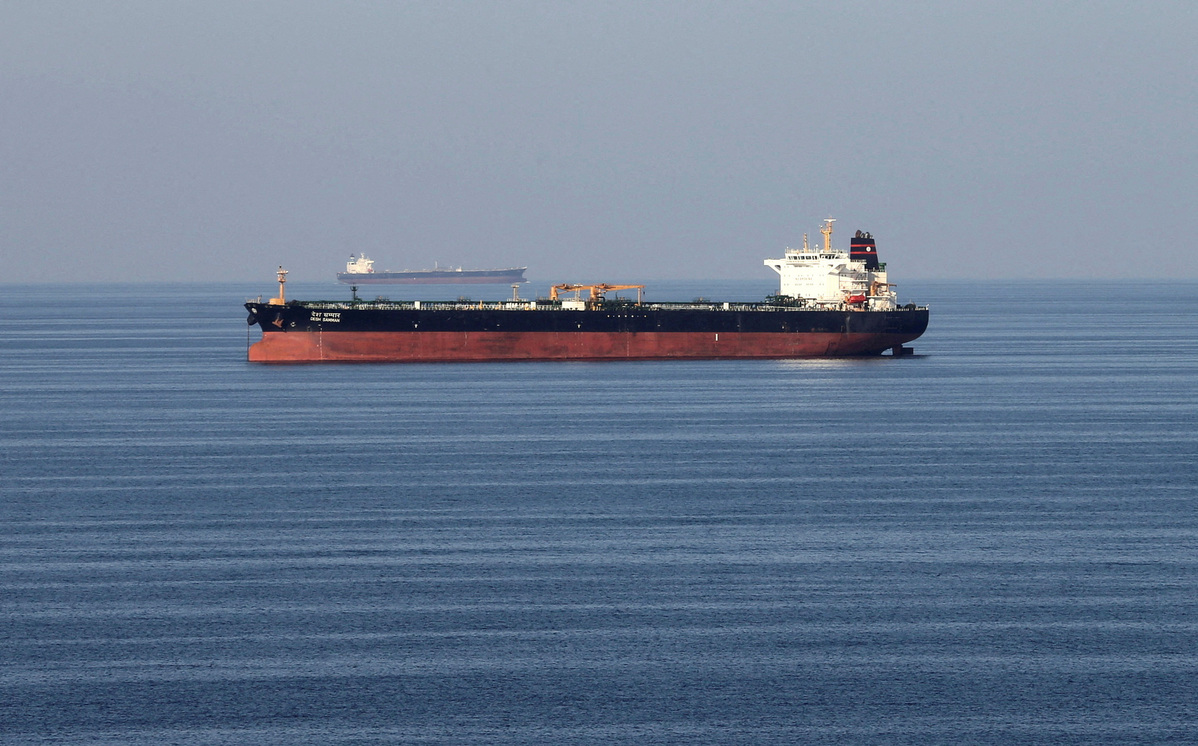
South Korean acting Finance Minister Lee Hyoung-il warned on Monday of increased volatility in global financial and energy markets due to escalating tensions in the Middle East following recent US military involvement.
"Following the United States' airstrikes, Iran's parliament passed a motion to close the Strait of Hormuz, highlighting the significant uncertainty surrounding the situation," Lee was quoted by the Yonhap News Agency as saying during a meeting on macroeconomic trends and risks.
The US launched air strikes on Iranian nuclear sites on June 21, with US President Donald Trump saying that Iran's key nuclear enrichment facilities were "completely and totally obliterated".
Noting that global oil prices had already risen by 2 to 3 percent on Monday, Lee said it signals increased volatility in international energy markets.
According to a news release issued by the Ministry of Economy and Finance after the meeting, Lee said related agencies need to closely monitor and respond to international energy prices and supply-demand conditions with special caution.
Despite challenging tax revenue conditions, the government has decided to extend the fuel tax reduction for two months until the end of August, Lee said.
"We will thoroughly monitor and prevent any illegal practices that take advantage of rising oil prices through the pan-governmental petroleum market inspection team, while ensuring domestic fuel prices do not rise excessively," he said.
He added that the government will also check market trends and implement necessary measures in time in case of excessive volatility in the financial market.
Given the high uncertainty moving forward, the ministry said a joint emergency response team across relevant agencies has been established to conduct 24-hour monitoring of developments in the Middle East.
"The team stands ready to implement contingency plans and respond swiftly to any emerging risks through close interagency coordination," it said.
The benchmark Korea Composite Stock Price Index dropped 15.87 points, or 0.53 percent, as of 11:20am local time on Monday morning.
While, the Korean won was trading at 1380.7 against the US dollar, a 15.1 won decrease from the previous session, according to statistics from Yonhap.
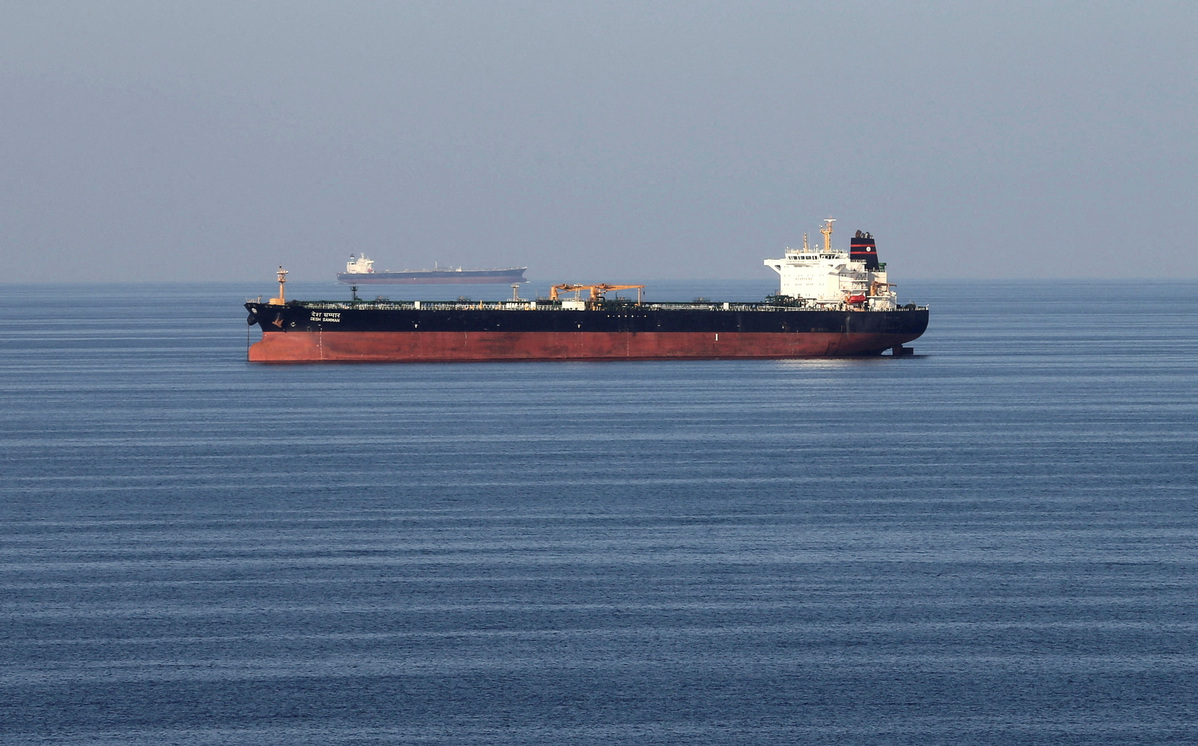
Goldman Sachs warns of energy supply risks as Middle East tensions threaten the Strait of Hormuz, potentially driving up oil and gas prices, the bank said in a note on Sunday.
The bank estimated that Brent crude could briefly hit $110 per barrel if oil flows through the critical waterway were halved for a month, before dropping by 10 percent over the following 11 months.
Prices are expected to average around $95 per barrel by late 2025, it added.
Oil prices surged on Monday to their highest levels since January after the United States, alongside Israel, attacked Iranian nuclear sites, escalating conflict in the Middle East.
Brent crude futures rose by $1.92 or 2.49 percent at $78.93 a barrel as of 0117 GMT, while US West Texas Intermediate crude advanced $1.89 or 2.56 percent to $75.73.
Both contracts jumped by more than 3 percent earlier in the session to $81.40 and $78.40, respectively, touching five-month highs before giving up some gains.
Iran's Supreme National Security Council is expected to decide whether to close the Strait of Hormuz after the country's parliament voted in favor of the step on June 22, according to media reports.
Connecting the Persian Gulf with the Gulf of Oman and the Arabian Sea, the strait is one of the world's most important oil transit chokepoints, handling about one-fifth of global oil shipments.
Citing data from Polymarket, Goldman Sachs said prediction markets are pricing a 52 percent chance of Iran closing the strait in 2025.
It also warned that a drop of 1.75 million barrels per day in Iranian supply could push Brent crude to $90.
"While the events in the Middle East remain fluid, we think that the economic incentives, including for the US and China, to try to prevent a sustained and very large disruption of the Strait of Hormuz would be strong," the bank was cited by Reuters as saying.
It also said the European natural gas markets are projected to price in a higher probability of disruption.
kelly@chinadailyapac.com
Iran deputy foreign minister says will continue uranium enrichment -- media
UNITED NATIONS - International Atomic Energy Agency (IAEA) Director General Rafael Grossi warned on Sunday that the international nuclear non-proliferation regime could crumble unless diplomacy returns, following Saturday's US strikes on Iranian nuclear sites.
"The nuclear non-proliferation regime that has underpinned international security for more than half a century is on the line. The dramatic events in Iran have become even more serious with last night's bombardments and the potential widening of the conflict," Grossi told an emergency meeting of the Security Council.
"We have a window of opportunity to return to dialogue and diplomacy. If that window closes, violence and destruction could reach unthinkable levels, and the global non-proliferation regime as we know it could crumble and fall," he warned.
Iran, Israel and the Middle East need peace and there is a path for diplomacy, he said, stressing the need to return to the negotiating table.
On the destruction of the US strikes, Grossi said there was damage to structures but no radioactive releases.
Craters are visible at the Fordow site, Iran's main location for enriching uranium to 60 percent, indicating the use by the United States of ground-penetrating munitions. At this time, no one, including the IAEA, is in a position to assess the underground damage at Fordow, he said.
At the Isfahan nuclear site, additional buildings were hit, with the United States confirming their use of cruise missiles. Affected buildings include some related to the uranium conversion process. Also at this site, entrances to tunnels used for the storage of enriched material appear to have been hit, he said.
At the Natanz enrichment site, the Fuel Enrichment Plant has been hit again, with the United States confirming that it used ground-penetrating munitions, he said.
Iran has informed the IAEA there has been no increase in off-site radiation levels at the three sites, said Grossi.
He said his agency has consistently underlined that armed attacks on nuclear facilities should never take place and could result in radioactive releases with grave consequences within and beyond the boundaries of the state that has been attacked. He again called for maximum restraint.
Military escalation threatens lives and delays a diplomatic solution for the long-term assurance that Iran does not acquire a nuclear weapon. It also threatens the global non-proliferation regime, he said.
"Let us not allow the window to close on diplomacy. Let us not allow the non-proliferation regime to fail. Irrespective of individual positions and views, one thing is certain, and this is the simple truth: we will not be safer if there are more nuclear weapons in more states around the world," said Grossi.
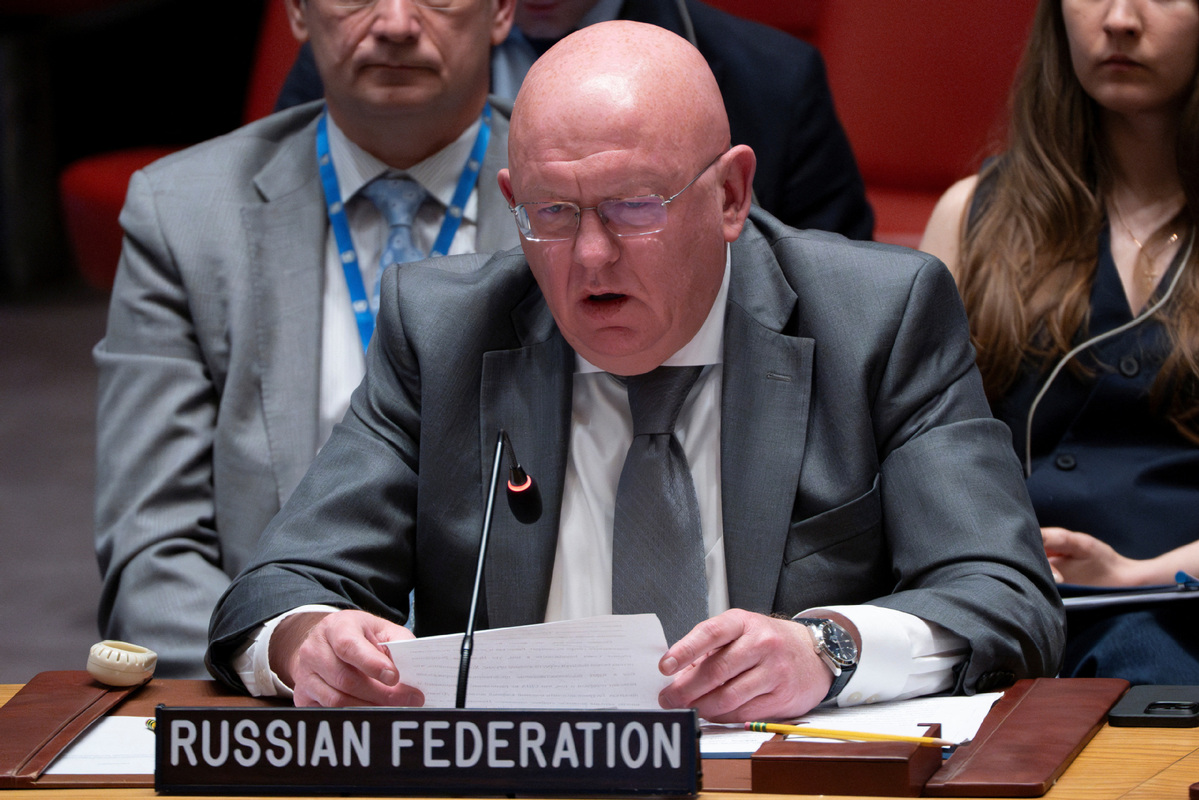
UNITED NATIONS - Russia's ambassador to the United Nations on Sunday condemned the US strikes on Iran's nuclear sites and accused Western Security Council members of hypocrisy.
Russia vehemently condemns the "irresponsible, dangerous, and provocative" actions taken by the United States against Iran, which is a sovereign country and a UN member state, said Vassily Nebenzia, Russia's permanent representative to the United Nations, during an emergency meeting of the Security Council.
He said the United States carried out unprovoked missile and bomb strikes on three Iranian nuclear sites that were under International Atomic Energy Agency (IAEA) safeguards.
"In doing so, Washington has yet again demonstrated its complete disregard for the position of the international community and reasserted that to advance the interests of its Israeli ally, it is prepared not only to turn a blind eye to the killings of tens of thousands of Palestinian women, children, and elderly people, but also to gamble with the safety and well-being of all humanity," he said.
Nebenzia warned that the attacks posed radiological risks and threatened the lives and health of large numbers of civilians both within the region and beyond.
Through its actions, the United States has opened Pandora's box, and no one knows what new consequences it may lead to, he cautioned.
He accused Washington of acting unilaterally and outside international norms.
"Washington sees itself as the highest judge in the land vested with the right to deliver justice at its sole discretion. Thus, the United States reaffirms that in order to preserve its global hegemony, it is ready to commit any crimes and violations of international law," he said. Nebenzia said the United States has lost credibility, adding that "none of the sensible members of the international community will believe our American colleagues anymore".
The Russian envoy also criticized what he called the double standards of Western Security Council members.
Nebenzia also noted what he described as the cynical reality in which Iran -- a country under IAEA monitoring -- is attacked while Israel, which has not joined the Nuclear Non-Proliferation Treaty (NPT), remains unchallenged.
He warned that continued escalation could push the Middle East to the brink of a large-scale conflict with "unpredictable consequences for the entire international security architecture".
The whole world could find itself on the verge of a nuclear catastrophe, he warned. "We call for an immediate cessation of aggressive actions by Israel and the United States, and we urge all parties to exercise restraint and return to international diplomacy and negotiations."
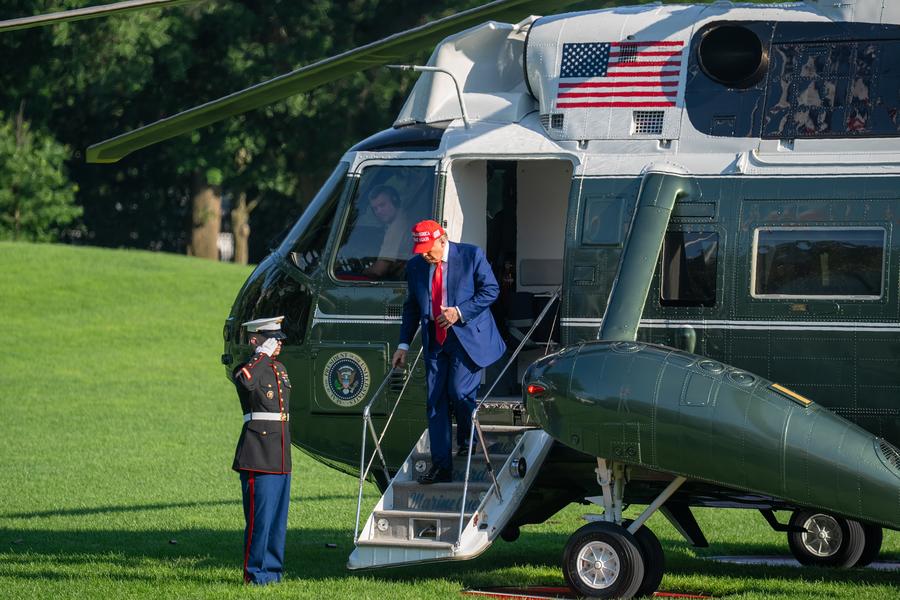
US President Donald Trump ordered a strike on three of Iran's nuclear sites at midnight on Saturday, a move that has caused mixed reactions among US politicians — from support to calls for impeachment.
Congresswoman Alexandira Ocasio-Cortez — commonly known as AOC — a Democrat from New York, was the first to call for impeachment over the Iran strike.
"The President's disastrous decision to bomb Iran without authorization is a grave violation of the Constitution and Congressional War Powers," AOC wrote on X on Saturday after the news broke. "He has impulsively risked launching a war that may ensnare us for generations. It is absolutely and clearly grounds for impeachment."
But many Republican lawmakers are backing Trump's decision.
House Speaker Mike Johnson took to X to voice his support: "The military operations in Iran should serve as a clear reminder to our adversaries and allies that President Trump means what he says," Johnson wrote.
Republican leader in the Senate John Thune also commended the military operation and called it a necessary check on Iran's ambitions of developing a nuclear weapon.
According to The New York Times, both Thune and Johnson were briefed before the strike took place.
Republican lawmakers argued that the strike will not drag the US into a prolonged war and the US will not deploy ground forces in the region as a result of the strike.
"To those concerned about US involvement—this isn't a 'forever war' in fact, it's ending one," Republican Senator Markwayne Mullin from Oklahoma wrote on social media.
Numerous Democratic lawmakers, even some Republicans, condemned the strike as "unconstitutional" because only Congress can authorize action to go to war.
"I am open to the idea that the US should attack Iran. But I am not open to the idea that Congress cedes all authority to the executive branch," Illinois Representative Sean Casten, a Democrat, posted on X, also calling Trump's action "impeachable".
"This is not about the merits of Iran's nuclear program. No president has the authority to bomb another country that does not pose an imminent threat to the US without the approval of Congress. This is an unambiguous impeachable offense," Casten wrote.
Texas Representative Al Green and Michigan Representative Shri Thanedar have been trying to introduce articles of impeachment against Trump, but they haven't got much support within the party.
Some Republicans also opposed Trump's move against Iran. "This is not Constitutional," Republican Representative Thomas Massie posted on X.
Massie and Democrat Ro Khanna introduced a bipartisan War Power Resolutions bill last week to require Congress to vote for US involvement in Israel's war with Iran.
"When two countries are bombing each other daily in a hot war, and a third country joins the bombing, that's an act of war," Massie posted. He said the bill aims to "prevent America from being dragged into another endless Middle East war."
Other members of Congress also worried that Trump might get the US involved in the Israel-Iran war. Senator Bernie Sanders last week also introduced a bill called No War Against Iran Act to prohibit the use of federal funds for any use of military force in or against Iran absent specific Congressional authorization.
"Netanyahu's reckless and illegal attacks violate international law and risk igniting a regional war. Congress must make it clear that the United States will not be dragged into Netanyahu's war of choice," Sanders said in a statement. "Another war in the Middle East could cost countless lives, waste trillions more dollars and lead to even more deaths, more conflict, and more displacement."
When news of the strike broke on Saturday, Sanders was at a "Fight Oligarchy" rally in Tulsa, Oklahoma. He read a sentence from Trump's statement to the crowd: "'We have completed a successful attack on three nuclear sites in Iran,' etc. etc."
The crowd erupted by shouting "boo" and chanting "no more war" repeatedly.
In Texas, Governor Greg Abbott issued a statement that Texas has elevated readiness in the event of any retaliatory response occurring in Texas.
"To ensure the highest level of safety in our communities, and out of an abundance of caution, Texas is elevating the readiness of our Texas Department of Public Safety troopers and Texas National Guard, increasing patrols around high-risk locations and ensuring our state is fully prepared to address any threat," Abbott said in a statement.
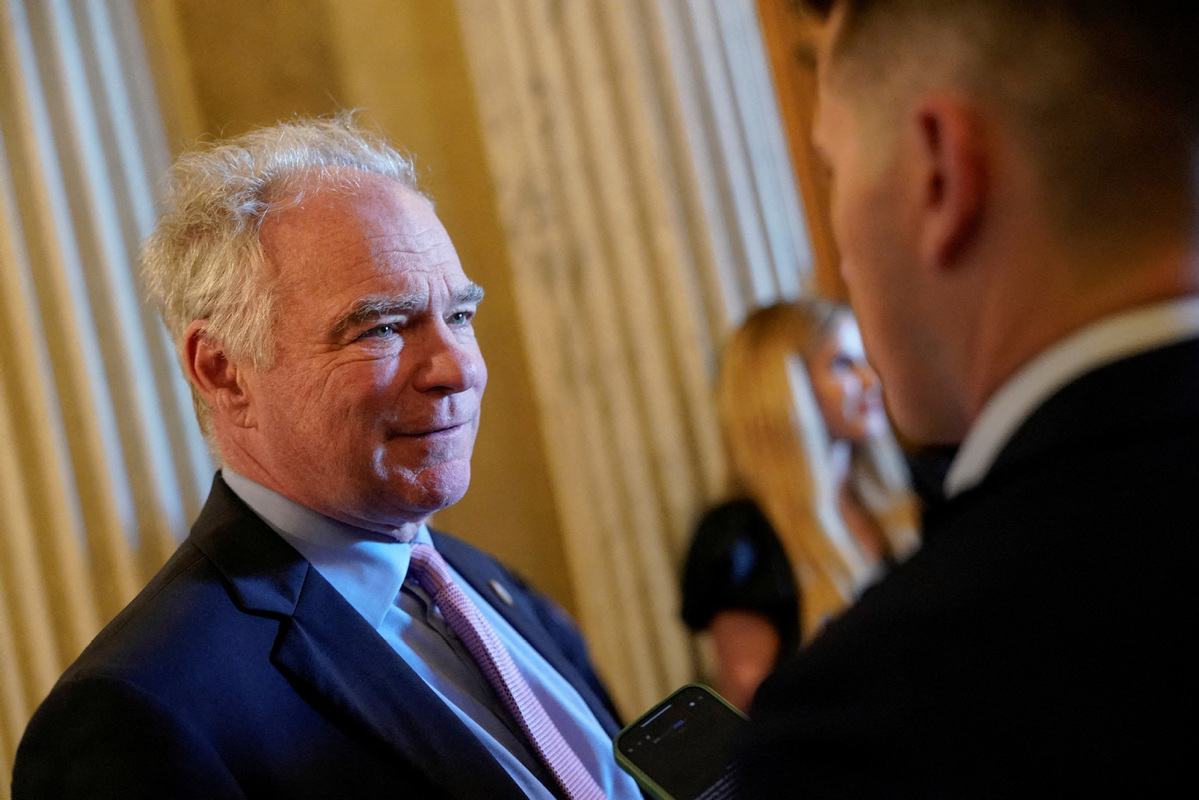
WASHINGTON -- Some Democratic and Republican lawmakers on Sunday called on US Congress to rein in President Donald Trump's use of military force in Iran and prevent US involvement in a deepening Middle East conflict.
US Democratic Senator Tim Kaine of Virginia said he expects to force the Senate to vote this week on his measure requiring Trump to terminate hostilities against Iran unless explicitly authorized by a declaration of war from Congress.
"This is the US jumping into a war of choice at Donald Trump's urging, without any compelling national security interest for the United States to act in this way, particularly without a debate and vote in Congress," Kaine told a CBS program.
Republican Representative Thomas Massie of Kentucky and Democratic Representative Ro Khanna of California said they want a vote on similar legislation they introduced in the House.
"I represent part of the coalition that elected President Trump. We were tired of endless wars," Massie told CBS.
Massie and Kaine each said there was no urgency requiring Trump to act unilaterally.
"There was no imminent threat to the United States," Massie said. "We haven't been briefed."
The White House did not respond to a request for comment on the criticism from lawmakers.
House Speaker Mike Johnson and Senate Majority Leader John Thune were both notified of the US military action ahead of time, according to sources familiar with the matter. Members of Congress are expected to be briefed on Tuesday.
The United States has launched strikes on three Iranian nuclear sites, drawing the US military directly into the conflict after days of uncertainty over whether President Donald Trump would intervene.
"Our objective was the destruction of Iran's nuclear enrichment capacity and a stop to the nuclear threat," Trump said in a four-minute national address at the White House Saturday night, adding that Iran's nuclear sites are "totally obliterated".
"If peace does not come quickly, we will go after those other targets with precision, speed and skill," he said.
Earlier Saturday, multiple American B-2 bombers were flying west over the Pacific Ocean and they were used in the strike. These bombers are capable of carrying 30,000-pound 'bunker-buster' bombs designed to penetrate fortified underground facilities.
Agencies
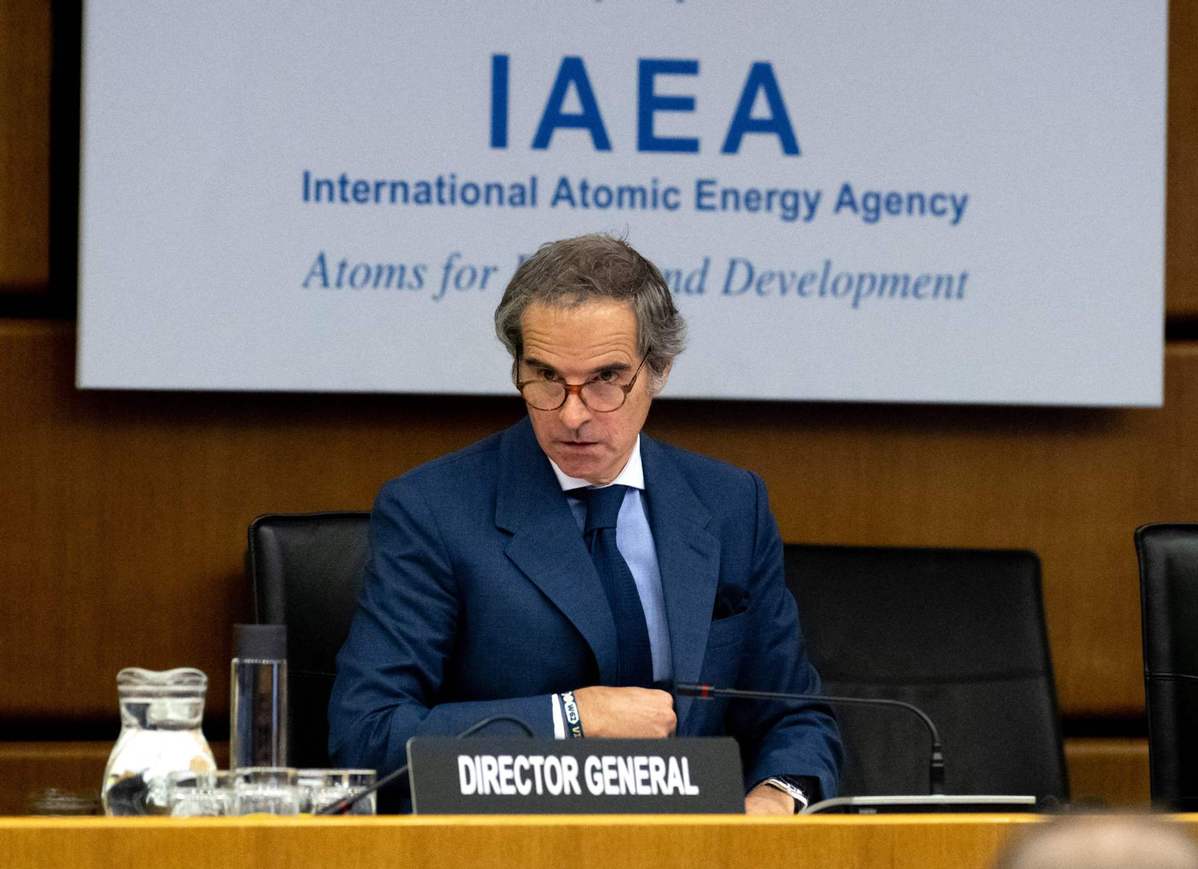
VIENNA - The extent of damage to Iran's Fordow uranium enrichment facility by US aerial attacks was not immediately possible to assess, the head of the United Nations nuclear watchdog said on Sunday.
Rafael Grossi, director general of the International Atomic Energy Agency (IAEA), confirmed in a statement that the Iranian nuclear sites of Fordow, Natanz, and Esfahan have been hit.
"It is clear that Fordow was also directly impacted, but the degree of damage inside the uranium enrichment halls can't be determined with certainty," he said, adding that the IAEA has been informed by the Iranian regulatory authorities that there has been no increase in off-site radiation levels after the attacks.
According to the IAEA analysis, the Natanz site, which has previously been extensively damaged, was again attacked during the strikes last night with ground-penetrating munitions; at the sprawling Esfahan site, which had already been struck several times by Israel, there has been extensive additional damage.
The IAEA had previously reported that several buildings at the Esfahan complex were damaged, some of which may have contained nuclear material.
"The latest attacks early this morning damaged other buildings in Esfahan. In addition, we have established that entrances to underground tunnels at the site were impacted," Grossi said.
He stressed the paramount importance of the countries involved urgently embarking on a diplomatic path aimed at ending the hostilities, saying this would also enable the IAEA to resume its crucial verification activities in Iran.
"We need to try to go back to the negotiating table as soon as possible. We have to allow the IAEA inspectors to return. The IAEA is ready to play its indispensable role in this process. We have been talking to Iran, we have been talking to the United States. We have to work for peace," Grossi said.
MOSCOW - Russia strongly condemns the strikes launched by the United States against a number of nuclear facilities in Iran, the Russian Foreign Ministry said in a statement on Sunday.
It stated that the irresponsible decision to carry out missile and bomb strikes against the territory of a sovereign state -- no matter what arguments are invoked -- grossly violates international law, the UN Charter, and UN Security Council resolutions.
It is particularly concerning that the strikes were carried out by a permanent member of the UN Security Council, the statement said.
"It is already obvious that a dangerous escalation has begun, threatening to further undermine regional and global security," said the statement, adding that the risk of conflict expansion in the Middle East, already engulfed by multiple crises, has significantly increased.
It noted that the attacks on Iran have caused enormous damage to the credibility of the Treaty on the Non-Proliferation of Nuclear Weapons and the International Atomic Energy Agency (IAEA) verification and monitoring system based on it.
Russia expects the IAEA to respond promptly, without resorting to empty rhetoric or hiding behind political "neutrality".
The ministry called on the UN Security Council to take action and said US and Israeli confrontation must be collectively rejected.
"We call for an end to aggression and urge efforts that will create conditions for a return to a political and diplomatic path," the statement said.
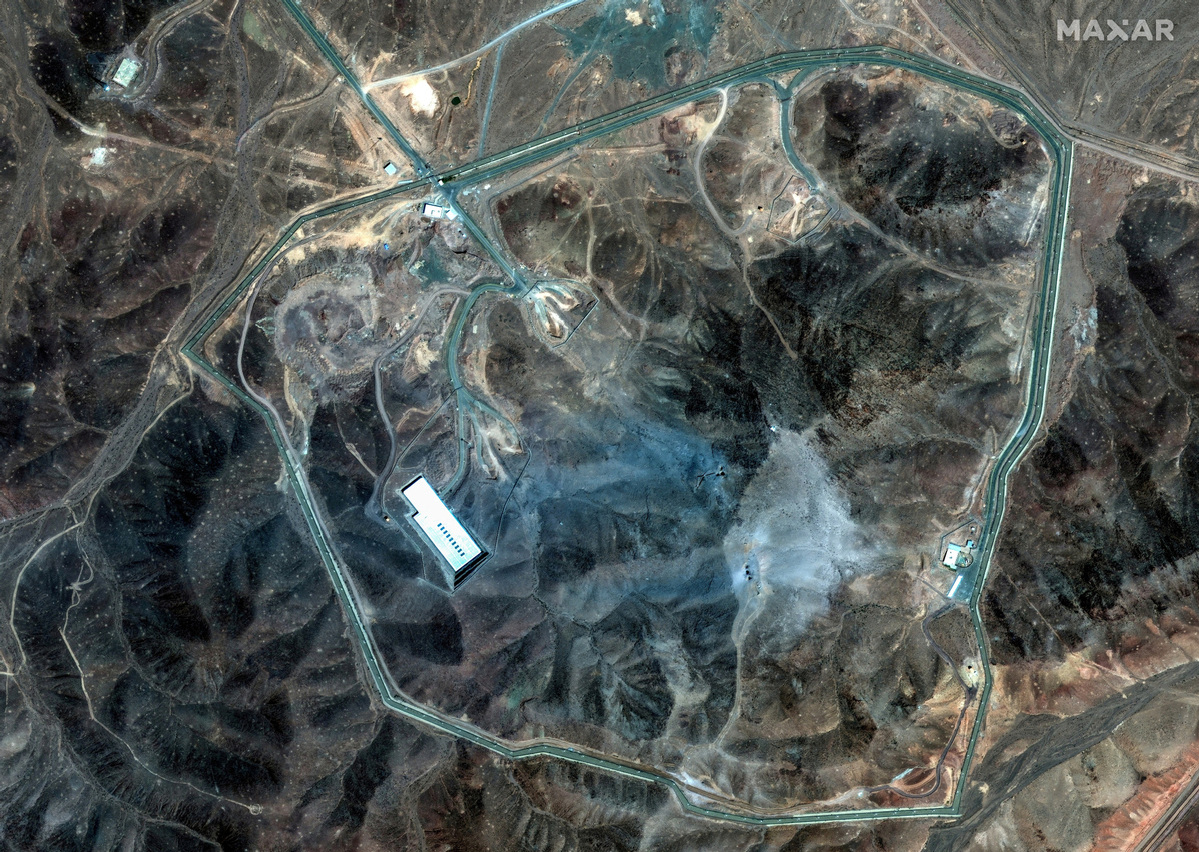
BRUSSELS - Several European governments on Sunday voiced concerns over US airstrikes on Iranian nuclear facilities, urging all parties to prioritize diplomacy and avoid further escalation. Some officials criticized the US action as an "unlawful attack".
The US attacks targeting key Iranian nuclear sites on Saturday have further destabilized an already volatile landscape. Rafael Grossi, director general of the International Atomic Energy Agency (IAEA), confirmed the damage in a statement issued on Sunday but said the agency could not yet assess the extent of the damage.
Grossi stressed the paramount importance of diplomacy in ending the hostilities and allowing the IAEA to resume its verification activities in Iran. "We have to allow the IAEA inspectors to return. The IAEA is ready to play its indispensable role in this process ... We have to work for peace," he stated.
In Sweden, Prime Minister Ulf Kristersson urged de-escalation. On the social media platform X, he emphasized the importance of halting the spiral of violence in the Middle East. "De-escalation, restraint, and a return to talks and diplomacy are now of utmost importance," he wrote.
In Finland, President Alexander Stubb described the US strikes as "of exceptional scale" and warned that the cycle of vengeance in the region must come to an end. "A sustainable solution requires diplomacy, dialogue, and respect for international law," he posted on X.
Slovenian Prime Minister Robert Golob also called for a return to diplomatic negotiations. In a statement issued on Sunday, he emphasized that continued violence and military conflict only bring further suffering to innocent civilians. Echoing the position of United Nations Secretary-General Antonio Guterres, he reiterated that peace and diplomacy are the only viable path forward.
The Slovenian Foreign Ministry echoed this position, expressing deep concern over the escalating tensions and warning that further hostilities could undermine international peace and security and endanger civilian lives. "Diplomacy and dialogue must prevail, and war must be avoided," the ministry stated, reaffirming support for the UN Charter.
Meanwhile, the Left, a member party of Slovenia's ruling coalition, condemned the US action as a dangerous and irresponsible act of escalation. The party criticized the strike for lacking a UN mandate and warned that it could push the region and the world closer to a wider conflict. It called on the Slovenian government to request an emergency meeting of the UN Security Council and urged the EU and wider international community to condemn the strike as an "unlawful attack".
Latvian President Edgars Rinkevics emphasized the need for all parties to return to negotiations in order to reach a diplomatic solution, while Slovak Foreign Minister Juraj Blanar condemned the US attack.
"It's unacceptable for any country to conduct military operations on the territory of another sovereign country," Blanar said. In a post on social media, he stressed that any conflict should be resolved through the United Nations, not through weapons.
In Estonia, Foreign Minister Margus Tsahkna told local media that "it is essential that the situation does not escalate into a broader conflict in the region and that the protection of civilians remains a priority for all parties." He called for collective international efforts to ensure long-term security in the region.
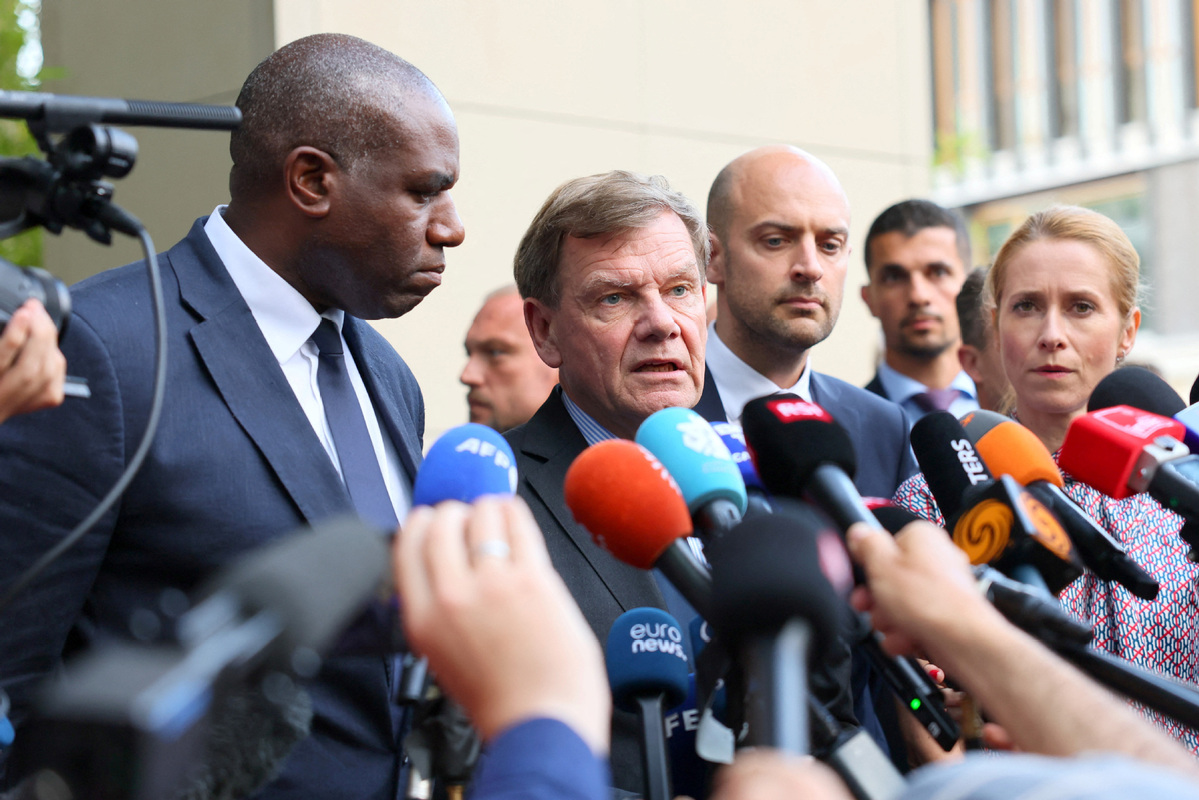
With the Geneva talks on the Iran nuclear program on Friday yielding little fruit, the European Union has been urged to play a more independent role in peace negotiations, even as the situation in the Middle East worsened following the bombing of nuclear sites by the US in Iran.
"The discussions and proposals made by the Europeans in Geneva were unrealistic. Insisting on these positions will not bring Iran and Europe closer to an agreement," Reuters quoted an Iranian senior official as saying on condition of anonymity, while no openly reached deal was reported yet.
For Di Dongsheng, dean of the School of Global and Area Studies at the Renmin University of China, the continued Israel-Iran conflict has put Europe in an awkward position. "Relying heavily on oil supplies from the Middle East, Europe now faces a high risk of energy shortage in case the situation worsens and the Strait of Hormuz gets closed," he told China Daily. "Besides, what Israel has been committing in Gaza, recognized by many as massacre, has aroused quite fierce opposition from the European people and certain political parties."
Yet politically, the major European powers are backing Israel, while the right-wing politicians in quite a number of European nations treat it almost as an ally, just the way the US does, Di said, citing German Chancellor Friedrich Merz's statement, in which he thanked Israel for "doing the dirty job for us all" in Iran. That might further split Europe, which is already divided on multiple issues, he said.
Jian Junbo, director of the Center for China-Europe Relations at Fudan University's Institute of International Studies, said that Iran's right to the peaceful use of nuclear energy had once become the consensus among major world powers.
Risk of chaos
However, Israel has ignited the powder keg in the Middle East again with a sudden attack on Iran on June 13, claiming the latter was "funding and directing terrorist activities via its proxies across the Middle East, while advancing toward obtaining a nuclear weapon", according to an Israel Defense Forces statement. The region faces the risk of chaos, observers noted, as the United States on Saturday launched attacks on three nuclear facilities in Iran.
"If the Middle East situation gets out of control, powers such as the Houthi group and the Kurdish forces might rise there, turning it into bigger chaos," he said. "In this case, Europe's interests will be more fragile."
"Europe is not capable of acting independently today … This is a big problem for Europe now, for as long as Europe fails to adopt an independent policy of its own, the more insignificant Europe will become on the world stage," said Mick Wallace, a former member of the European Parliament.
He also said: "Europe should now condemn this illegal US act of aggression against Iran, and EU member states should break off all business links with Israel while they continue to behave as a lawless apartheid state."
"I am convinced that a path exists to end war and avoid even greater dangers," French President Emmanuel Macron wrote on X. "To achieve this, we will accelerate the negotiations led by France and its European partners with Iran."
EU foreign ministers will discuss the situation on Monday, Kaja Kallas, foreign affairs chief of the EU, posted on X.
UNITED NATIONS - A Chinese envoy at the United Nations on Sunday condemned the United States for its strikes on Iranian nuclear sites at an emergency meeting of the Security Council.
"Yesterday (Saturday), the United States conducted attacks on three Iranian nuclear facilities in Fordow, Natanz and Isfahan. China strongly condemns the US attacks on Iran and the bombing of nuclear facilities under the safeguards of the International Atomic Energy Agency," said Fu Cong, China's permanent representative to the United Nations.
China's ambassador to the UN has condemned the US bombing of three nuclear facilities in Iran, and has called for an immediate ceasefire and an end to the hostilities.
"The actions of the United States seriously violate the purposes and principles of the UN Charter and international law, as well as Iran's sovereignty, security and territorial integrity," Ambassador Fu Cong said at an emergency meeting of the UN Security Council on Sunday.
"The international community must uphold justice and make concrete efforts to cool down the situation and restore peace and stability," Fu said.
The United States on Sunday send numerous B-2 bombers carrying "bunker buster" bombs into the airspace of Iran, where they severely damaged and possibly demolished Iranian nuclear facilities at Fordow, Natanz and Isfahan.
Final assessments of the damage are still pending.
With this action, the US joined Israel in its aim to destroy Iran's nuclear capabilities.
Iran reportedly responded to the US attack by firing 40 missiles targeting multiple sites in Israel, in the latest escalation of hostilities between the two Middle East nations. Since June 13, Israel has conducted large-scale strikes on Iranian military and nuclear facilities. However, Israel believed that destroying three of the facilities were beyond the capability of its own weaponry.
Iranian President Masoud Pezeshkian condemned the US attacks, saying, "This aggression shows that the United States is the primary instigator of ... hostile actions against the Islamic Republic of Iran."
Fu said: "Peace in the Middle East cannot be achieved by the use of force. Dialogue and negotiation are the fundamental way out. At present, diplomatic means to address the Iranian nuclear issue have not been exhausted, and there is still hope for a peaceful solution."
"Parties should stay firmly committed to the political settlement of the Iranian nuclear issue and work to bring it back onto the track of a political solution through dialogue and negotiation, with a view to reaching an agreement acceptable to all parties." Fu said.
At the emergency meeting, China, Russia and Pakistan proposed a draft resolution calling for an immediate ceasefire and an end to the hostilities, effective protection of civilians, a commitment to dialogue and negotiation, and swift action by the Security Council.
"The Security Council shoulders the primary responsibility for the maintenance of international peace and security. It cannot stand idly by in the face of a major crisis," Fu said.
"We hope that Council members can demonstrate their strong sense of responsibility by jointly supporting the draft resolution, to enable the Security Council to fulfill its responsibility for the maintenance of international peace and security," Fu said. "China stands ready to work with the international community to foster synergy, uphold justice and make unremitting efforts to restore peace and stability in the Middle East."
Antonio Guterres, secretary-general of the United Nations, said the bombing marked a perilous turn in the region.
"We must act — immediately and decisively — to halt the fighting and return to serious, sustained negotiations on the Iran nuclear program," Guterres told the Security Council. "We need a credible, comprehensive and verifiable solution — one that restores trust — including with full access to inspectors of the IAEA, as the United Nations technical authority in this field."
"The people of the region cannot endure another cycle of destruction," he said. "And yet, we now risk descending into a rathole of retaliation after retaliation."
"To avoid it, diplomacy must prevail," Guterres said.
Editor's note: As the United States launched attacks on three nuclear sites in Iran over the weekend, this page examines the escalating Middle East crisis despite renewed diplomatic efforts by relevant parties, and the potential economic ripple effects that threaten regional stability and global markets.
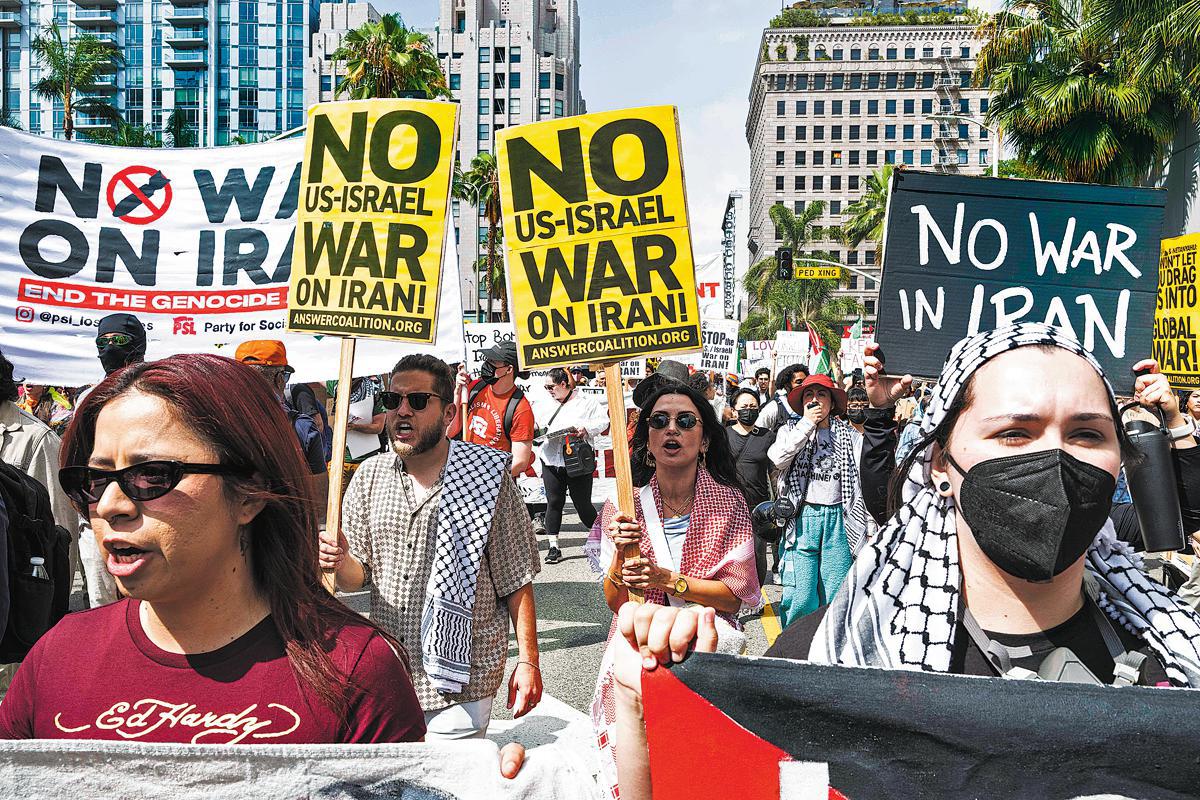
Strongly condemning the United States' "brutal military aggression" against Iran's peaceful nuclear facilities on Sunday, Iran emphasized its right and will to defend itself and struck Israel with new missiles.
The US is joining Israel in its attacks on Iran "to its own detriment", Iranian Supreme Leader Ayatollah Ali Khamenei has warned.
The US strikes on nuclear energy facilities at Natanz, Fordow and Isfahan escalated the conflict and added to damage inflicted by Israeli airstrikes since its surprise attacks on June 13, raising alarm over violations of international law and consequential contamination.
In a Sunday statement on the X platform, Iran's Foreign Ministry said: "The world must not forget that it was the United States that, in the midst of a diplomatic process, betrayed diplomacy by supporting the genocidal and law-breaking Israeli regime to impose a war of aggression on the Iranian nation.
"The warmongering and lawless regime of the United States of America is held fully responsible for the dangerous consequences and far-reaching implications of this egregious act of aggression and heinous crime," the statement said, adding that Iran has "resolved to defend Iran's territory, sovereignty, security and people".
It also called out the United Nations, the UN Security Council, the International Atomic Energy Agency, and other relevant international bodies "to take urgent and decisive action in response to this appalling breach of international law".
The Atomic Energy Organization of Iran has condemned the US attacks on Iran's nuclear sites, which it said contradicts international law, especially the Nuclear Non-Proliferation Treaty, according to its statement.
Morteza Heydari, a spokesman for Qom Provincial Crisis Management Headquarters, was quoted by Iran's Tasnim News Agency as saying: "Hours ago, after Qom's air defenses were activated and hostile targets were identified, part of the Fordow nuclear site was attacked by enemy airstrikes."
Iran had been expecting attacks on Fordow for several nights, and the facility had been evacuated before the airstrikes occurred, and did not suffer irreversible damage, according to an adviser to Iran's Parliament speaker.
In a phone call with his Egyptian counterpart Abdel Fattah El-Sisi on Sunday, Iranian President Masoud Pezeshkian said his country would give a firm and decisive response to the "aggression by the US-backed Israeli regime", noting Israel has been trying to drag the US into the conflict.
The Islamic Revolutionary Guard Corps said, for the first time, it launched multiwarhead Kheibarshekan (castle buster) ballistic missiles in its retaliatory strikes against Israel, Tasnim News Agency reported on Sunday.
Israeli public broadcaster Kan, citing an anonymous Israeli official, said Israel was "in full coordination with the US" during its attacks on Iran.
Inside Israel, sirens sounded across central and northern parts as Iran launched ballistic missile strikes, its first since June 13 after the US attacks, against Israeli targets, in addition to drone and other missile retaliations. The Times of Israel reported at least two dozen people were wounded.
The Israel Defense Forces, early on Sunday, decided to shift all areas of the country from Partial and Limited Activity to Essential Activity, thus prohibiting educational activities and gatherings, except for essential sectors. The IDF also launched more airstrikes against the military and related targets inside Iran.
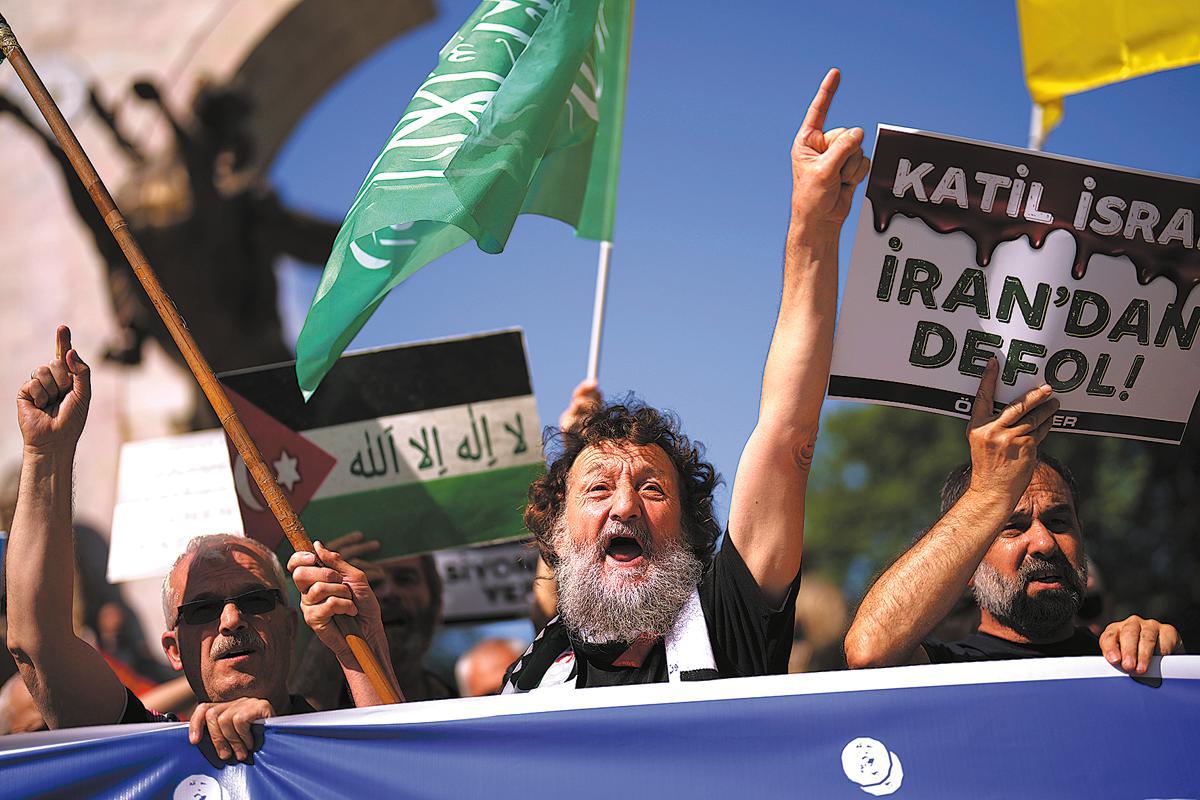
Call for political solution
Countries in the Asia-Pacific region have called for a political solution while voicing condemnation of or concern over US attacks on Iran's nuclear energy facilities.
Iraqi government spokesperson Bassem Al-Awadi said that "targeting nuclear facilities inside Iran is a dangerous threat to security and peace in the Middle East and exposes regional stability to great risks".
Pakistan's Prime Minister Shehbaz Sharif reaffirmed Pakistan's unwavering solidarity with Iran on Sunday in a telephone conversation with Pezeshkian. Sharif conveyed Pakistan's condemnation of the US attacks against Iranian atomic energy facilities, according to a release by the Consulate General of Pakistan in Hong Kong and Macao SARs.
Saudi Arabia's Foreign Ministry, in a statement on X, affirmed its condemnation and denunciation for violating the sovereignty of the Islamic Republic of Iran, expressing the need to "exert all efforts to exercise restraint, de-escalate, and avoid escalation".
Oman, Qatar, Lebanon, the United Arab Emirates and Palestine also expressed deep concern, condemning the escalation resulting from the direct US airstrikes against Iranian facilities, and urging continued political talks to end the conflict. Australian and New Zealand officials, too, voiced concern, stating they "continue to call for de-escalation, dialogue and diplomacy".
Yemen's Houthi group on Sunday said the US administration's "reckless aggression against three Iranian nuclear sites is a blatant declaration of war against the brotherly Iranian people. We declare our full support for the brotherly Iranian people".
Other countries that slammed the US included Venezuela, Cuba, and Chile, calling the attacks "illegal".
Arhama Siddiqa, a research fellow at the Institute of Strategic Studies Islamabad in Pakistan, told China Daily the US strikes on Iran's safeguarded nuclear sites, carried out despite IAEA oversight and warnings, "mark a dangerous turn in regional crisis management".
"By bypassing Arab League and Organisation of Islamic Cooperation diplomacy, Washington has signaled a pivot from consensus-building to unilateral force, widening the rift between Western and regional approaches," said Siddiqa.
"Moreover, IAEA chief Rafael Grossi has repeatedly warned that attacks on nuclear infrastructure 'cause a sharp degradation in nuclear safety and security' and risk radiological or chemical contamination, even if no public release has yet occurred, 'nuclear facilities must never be attacked, regardless of the context'," said Siddiqa.
Agencies contributed to this story.
jan@chinadailyapac.com
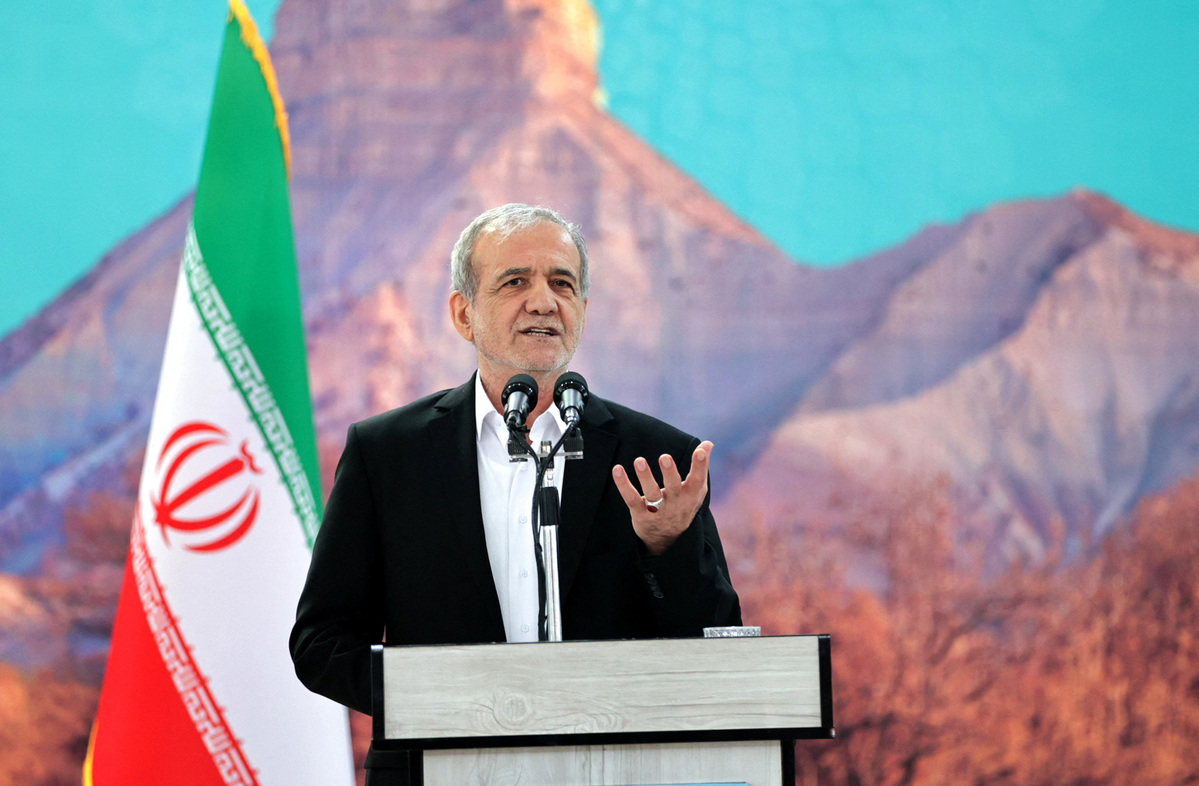
TEHRAN -- Iranian President Masoud Pezeshkian said on Sunday that the United States must "receive the response to its aggression," following US strikes on Iranian nuclear facilities.
Pezeshkian made the remarks during a phone call with French President Emmanuel Macron, according to a statement from his office. In response to Macron's call for restraint, Pezeshkian said the United States must face consequences for its attacks on Iran.
He described the US strikes as a "clear symbol of its insincerity and the baselessness of its claims about favoring dialogue and seeking peace."
Despite this, Pezeshkian stressed Iran's continued commitment to diplomacy with Europe, saying, "We have always announced our readiness for dialogue and interaction with Europe and have never abandoned the path of diplomacy, as we maintain that nobody would suffer any harm from dialogue."
Macron reiterated France's willingness to pursue negotiations with Iran and said Paris would continue efforts to halt the conflict and restore stability, according to the statement.
US President Donald Trump on Saturday announced on Truth Social that American forces had completed strikes on three Iranian nuclear sites, namely Fordow, Natanz, and Isfahan.
The US strikes followed Israeli attacks launched since June 13 on various targets in Iran, including nuclear and military sites, killing several senior commanders, nuclear scientists, and civilians.
Iran has retaliated with missile and drone strikes on Israel. As of Saturday, more than 400 people have been killed and over 3,500 wounded in Iran, according to the Iranian Health Ministry. In Israel, authorities reported 24 fatalities.
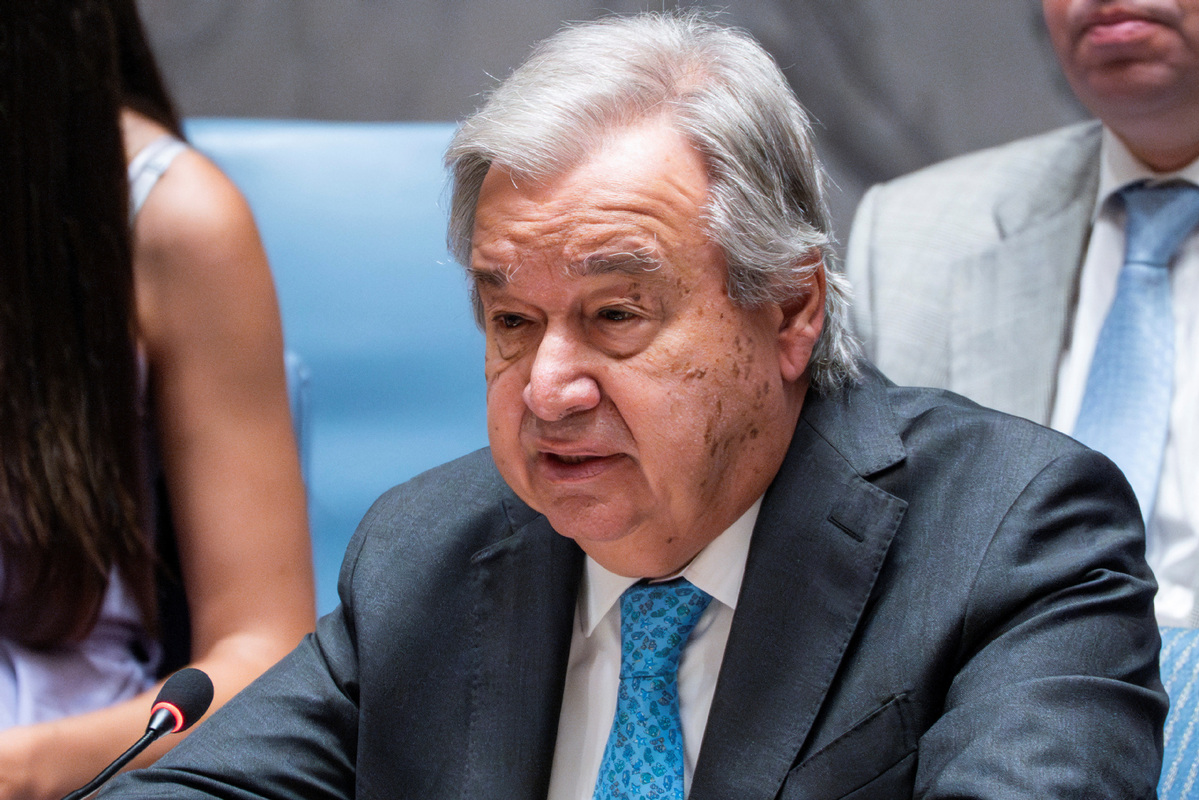
The Secretary-General of the United Nations, Antonio Guterres, said the US bombing of Iranian nuclear facilities risks sparking another cycle of destruction.
"We now risk descending into a rathole of retaliation after retaliation," Guterres said in remarks to the Security Council.
"To avoid it, diplomacy must prevail. Civilians must be protected. Safe maritime navigation must be guaranteed," he said. "We must act — immediately and decisively — to halt the fighting and return to serious, sustained negotiations on the Iran nuclear program."
The US used B-2 bombers to attack three nuclear facilities in Iran on Sunday, aiming to destroy the country's nuclear program.
China's Foreign Ministry said the US actions seriously violated the purposes and principles of the UN Charter and international law, and exacerbated tensions in the Middle East.
shiguang@chinadailyusa.com
UNITED NATIONS - The UN Security Council will meet Sunday to discuss US strikes on Iran's nuclear sites as Russia, China and Pakistan proposed the 15-member body adopt a resolution calling for an immediate and unconditional ceasefire in the Middle East.
It was not immediately clear when it could be put to a vote. The three countries circulated the draft text, said diplomats, and asked members to share their comments by Monday evening. A resolution needs at least nine votes in favor and no vetoes by the United States, France, Britain, Russia or China to pass.
The world awaited Iran's response on Sunday after President Donald Trump said the US had "obliterated" Tehran's key nuclear sites, joining Israel in the biggest Western military action against the Islamic Republic since its 1979 revolution.
Iran requested the UN Security Council meeting, calling on the 15-member body "to address this blatant and unlawful act of aggression, to condemn it in the strongest possible terms."
Israel's UN Ambassador Danny Danon said in a statement on Sunday that the US and Israel "do not deserve any condemnation, but rather an expression of appreciation and gratitude for making the world a safer place."
UN Secretary-General Antonio Guterres on Saturday branded the US strikes on Iran as a "dangerous escalation in a region already on the edge – and a direct threat to international peace and security."
"At this perilous hour, it is critical to avoid a spiral of chaos. There is no military solution. The only path forward is diplomacy. The only hope is peace," Guterres said in a statement.
Reuters
